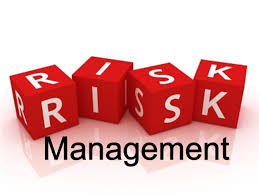Click Here For More Information
Navigating the realm of risk management takes more than superior strategies—it requires collective involvement! Incorporating risk management within your project workflows and advocating for transparent dialogue ensures all members contribute. Augment involvement and watch your project risks diminish! This course anticipates your understanding of project management principles and hands-on experience in project methodologies or a PMP® Certification. As a prerequisite, attendees should have either completed Project Management Fundamentals and Best Practices or possess equivalent expertise.
This course is designed for managers of project managers, project managers, project team members and risk team members who want to master the essential elements of effective risk management. Project teams who are about to begin risk management planning on a small to medium sized project and want to get a fast start on Risk planning and management
Learning objectives include:
- Recognize the importance of risk management in successful projects.
- Understand the critical success factors for effective risk management.
- Learn to identify positive (Opportunities) as well as negative (Threats) risks.
- Discover the root cause of risks by identifying the “Drivers” associated with the risk probability and consequences.
- Gain hands on experience using Quantitative Analysis tools such as Decision Tree and Monte Carlo Analysis.
- Developing SMART Risk Response Actions
- Learn practical methods for tracking and trending your project risks.
Course Outline:
Integrating Project and Risk Planning:
- Cost / benefit of project risk management.
- Stakeholder identification and participation.
- Finding the level of risk management that reflects the needs of the project.
Communication (Risk and Project) Success:
- Risk Attitude and Risk Appetite.
- Engaging your team and other stakeholders.
- Creating an environment in which stakeholders want to talk to you.
Risk Identification:
- Risk Register.
- Scenario Analysis.
- Nominal Group Technique.
- Risk Interview Techniques.
- Risk Identification Workshops.
Qualitative Risk Analysis Techniques:
- Selecting the best Probability and Impact Matrix for your project.
- Defining the Probability and Impact Matrix scales.
- Identifying Risk Drivers associated with the Probability and impact of your risks.
Quantitative Risk Analysis Techniques:
- Expected monetary value analysis.
- Decision Tree Analysis.
- Probability distributions.
- Modeling and simulation (Monte Carlo) with hands on application of Full Monte Schedule and Cost Analysis Software.
- Analyze your project schedule and budget in class.
Planning Effective Risk Response Actions:
- Develop SMART Risk Response Actions that can be implemented, monitored and controlled through project completion.
- Use of Risk Drivers to establish effective risk response actions.
- Risk Urgency can cut your cost and reduce your risk.
Monitoring and Controlling the Project and Risks:
- Routine monitoring for presence of new risks, risk triggers, and obsolete risks.
- Utilize Earned Value Analysis and Earned Schedule Analysis to monitor and control project risks.
- Regular Risk Reanalysis increases the team awareness of risk.
Real Time Risk Simulator:
- A fun/interactive game that engages the attendees in a simulation of real life risk management, while learning how risk, cost and schedule affect each other. Plotting earned value as the game proceeds provides the attendees with the information needed to determine if their project is headed for success or failure.
Cancellation Policy: 5 working days for full refund. Cancellations after that time are charged full tuition for the course.
For more information regarding refund, concerns, and/or program cancellation policies please contact our offices at 919-878-7100 ext. 22





